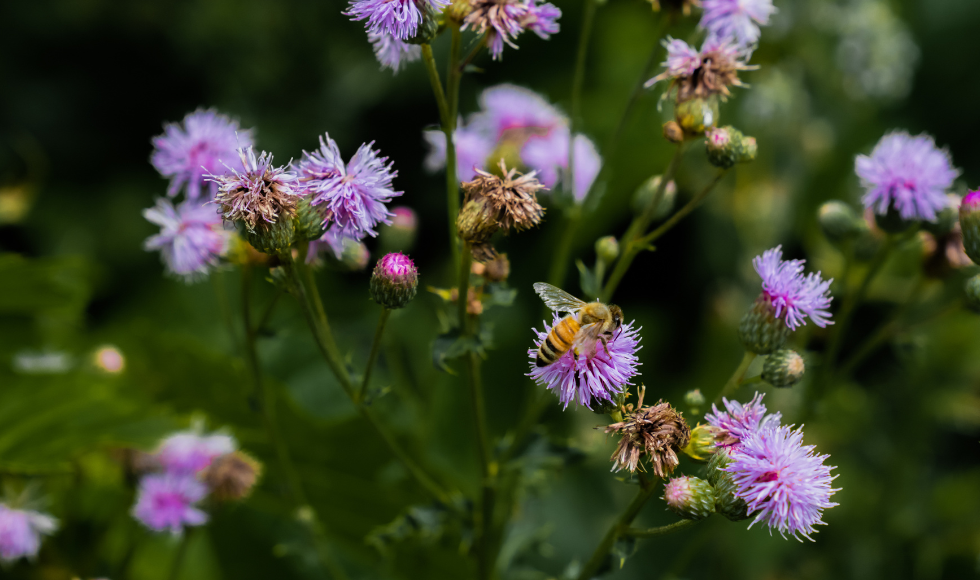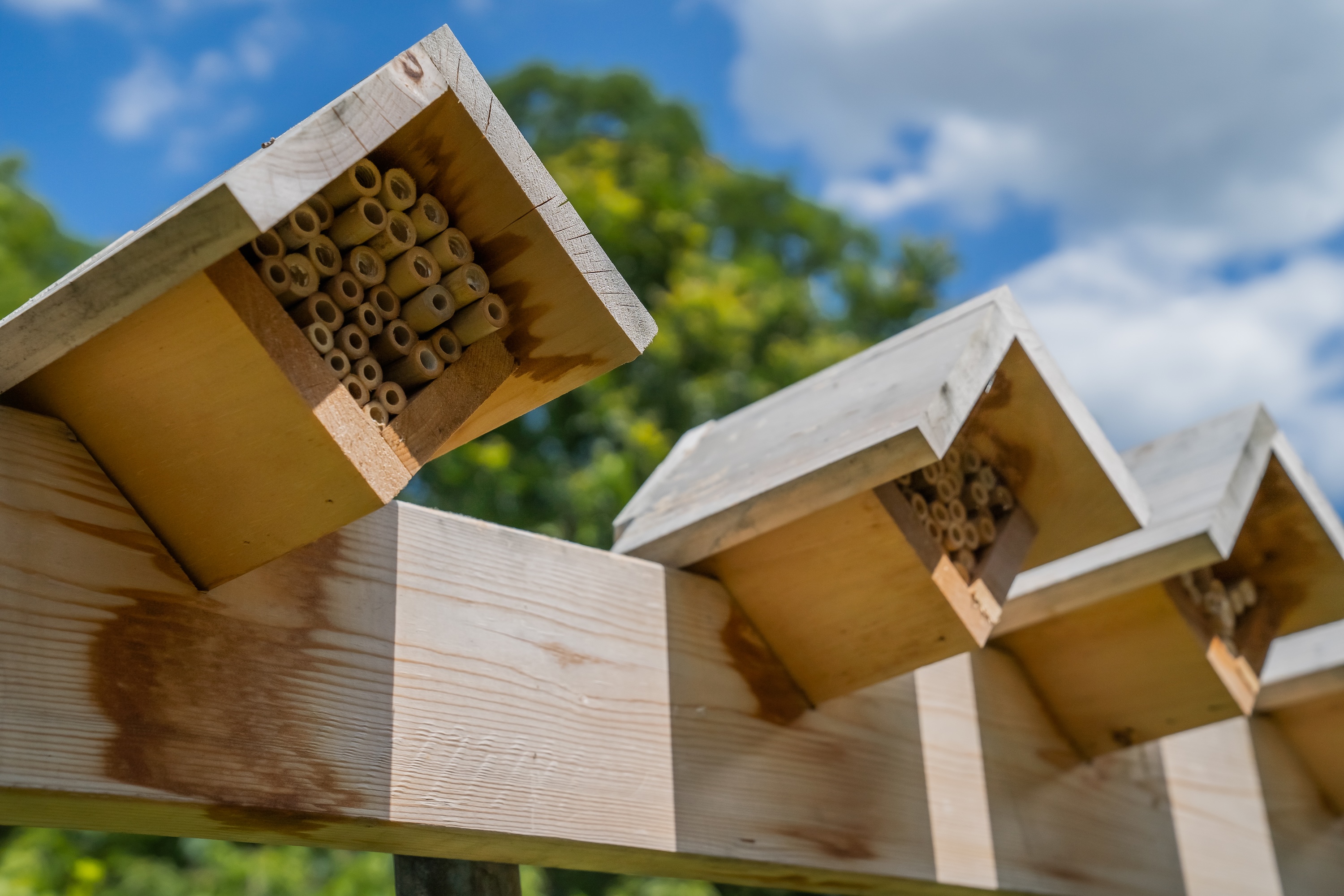Buzzworthy: May 20 is World Bee Day

Located in a biodiversity 'hot spot,' McMaster boasts over 200 species of native bees on its grounds. Over 100 native trees and shrubs have been planted across campus to support these pollinators, keeping them well-fed close to home.
McMaster University is celebrating World Bee Day, as one of 22 Bee City Certified campuses in Canada. This United Nations initiative aims to raise awareness about the critical role bees play in our global ecosystem.
McMaster began its journey in native bee protection in 2019 with the installation of 50 bee homes, earning Bee City Campus status with Bee City Canada in 2020. As part of this designation, McMaster updates its efforts to support bee populations annually.
“As a Bee Campus, McMaster is committed to supporting pollinator health and raising awareness of the critical role bees play in our ecosystem,” says Dave Cano, director of Sustainability.
Since then, students, staff and faculty have added 25 more bee homes and a live camera feed, built a ground-nesting bee garden and created a digital bee map with QR codes at various bee habitat sites.
Located in a biodiversity ‘hot spot,’ McMaster boasts over 200 species of native bees on its grounds. Over 100 native trees and shrubs have been planted across campus to support these pollinators, keeping them well-fed close to home.
“Solitary bees have a small flying radius, so it’s important to plant native species that these bees feed on or collect pollen from to prevent their population from dwindling,” explains Abbie Little, community engagement coordinator of McMaster’s ILEAD office.
McMaster’s Facilities Services has played a key role in these efforts. This spring, the Grounds and Maintenance Services teams helped rebuild and repair half of the bee homes, replacing bamboo straws with paper ones, as research showed the bees preferred the latter.

Andy Mous, a supervisor in Maintenance Services, says building these homes benefits his carpenters as well.
“Our team enjoys getting involved with various research projects on campus. The bee habitats provide a unique opportunity for our carpenters to revisit some of their finer finishing skills.”
Protecting native bees aligns with the Sustainable Development Goals of zero hunger; good health and well-being; clean water and sanitation; and supporting life on land. To learn more about how we are supporting our buzzy friends, visit the Native Bees at McMaster web page.


